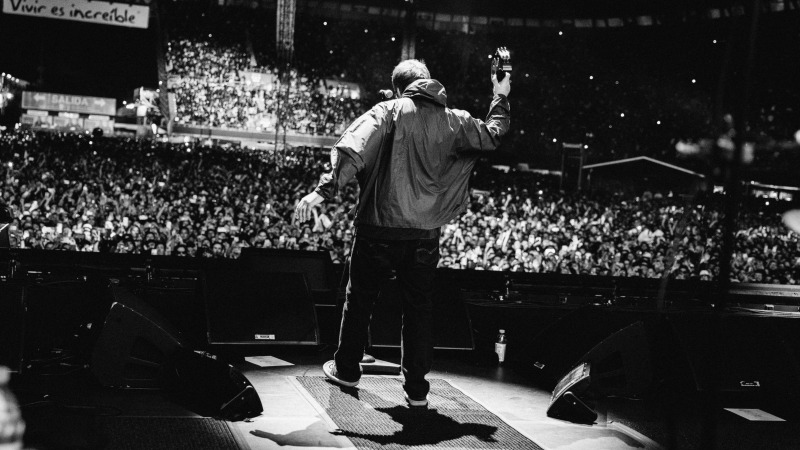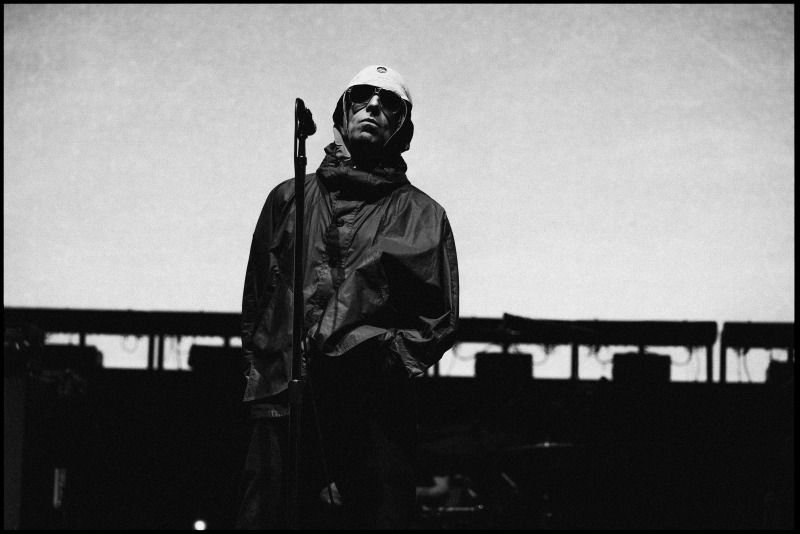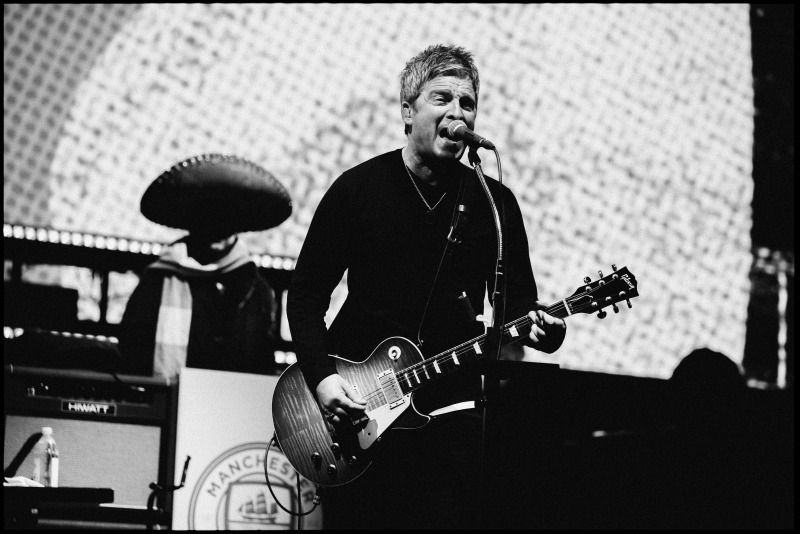How the Oasis Reunion Has Become 2025’s Most Wholesome Story
Apparently, we’re all putting our lives in the hands of this rock and roll band.
Photos by Joshua Halling
Once upon a time, a little over a month ago, some of us (read: me) were worried about how the Oasis reunion tour would play in North America. Could the immaculate vibes and joyous sense of community that had fueled the show’s U.K. dates survive a trip across the pond? Would it all still work on a leg that included multiple stops in the U.S., the shore upon which so many of the band’s dreams had struggled to survive in previous years? After all, if the wheels were going to come off this thing anywhere, surely it would be here, in the country that never seemed to love the band as much as the rest of the world did. (Fun fact: Despite the ubiquity of “Wonderwall” back in the mid-‘90s, Oasis has never had a #1 single or album in America.)
At some point, I’m really going to have to stop underestimating this reunion. Because the crowds showed up, the fans showed out, and, impossibly, the band somehow sounded even better than they did in the United Kingdom. The setlist is the same as it was four weeks ago, yet somehow the songs are tighter, the attitudes more confident, and the emotions more evident, from those onstage and off. Media headlines have declared the North American shows “triumphant,” “emotional,” and the “feel-good event of the year”. And they’re not wrong; I’ve seen the tour in two very different locations (Edinburgh and East Rutherford) now, but attended the second assuming the full reunion experience couldn’t possibly translate outside of the homeland that loved the lads best. What a delight it has been to be so thoroughly proven incorrect. Because while I got weepy at different songs the second time around (“Stand By Me” and “Don’t Look Back in Anger,” for those who are curious), the sweeping sense of cathartic euphoria was exactly the same.
It’s probably obvious that none of us expected this. Noel and Liam Gallagher’s combustible personal and professional relationship is the stuff of legend, after all, written across decades of fraternal tension, onstage bickering, backstage brawls, tabloid headlines, and interview soundbites. Given the things they’ve said to and about one another, it’s genuinely a miracle that this tour happened at all. But there’s no way any of us could have guessed that when it did, it would be this, a wild, improbable, seemingly impossible joy bomb that’s fully taken on a life of its own. In every city across North America, from seen-it-all New York (er…New Jersey) to too-cool-for-everything Los Angeles and raucous Mexico City, the story of Oasis summer has been the same. Tears, smiles, full-throated sing-alongs by fans spanning generations, and a concert hangover that lasts for days afterward.

Yes, the band still miraculously sounds as good as they ever did in their heyday. Liam’s voice is immaculate. Noel’s guitar is blazing. But it’s the genuine emotion of this whole endeavour that has taken it to a completely different level, and that’s down to the two men at its center, who appear to have, against all odds, found a way forward together, as both brothers and bandmates. Let’s face it, we all came into this tour ready (prepared? afraid?) for it to fall apart. That it hasn’t—that it seems to be somehow improving with every stop—feels crazy in the best, most unbelievable way.
-

-

-

-

-

-

-

-

-

-

-

-

-

-

-

-

-

-

-

-

-

-

-

-

-

-

-

-

-

-

-

-

-

-

-

-

-

-

-

-









































